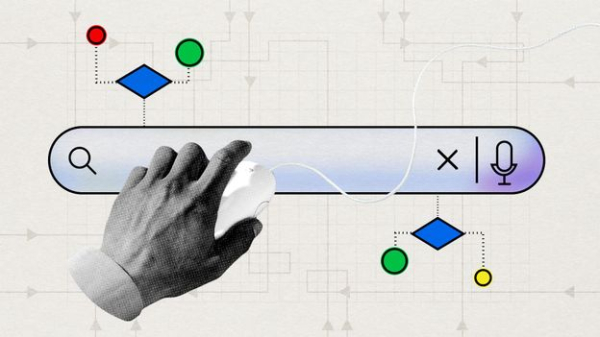Suche
Beiträge, die mit search getaggt sind
New #blog post: Hashtags, Part II: Global Search and the Right to Not Be Discovered
https://rldane.space/hashtags-part-ii-global-search-and-the-right-to-not-be-discovered.html
cc: my #chorus: @amin @joel @joelchrono @dm @sotolf @ivan @thedoctor @pixx @mirabilos @twizzay@thisis.mylegendary.quest @twizzay@behold.mylegendary.quest @orbitalmartian @adamsdesk
#rlDaneWriting #WritingMonth #hashtag #hashtags #search #mastodon #fediverse #MastodonSearch #GlobalSearch
P.S., this is a great example (and thoughtful commentary tangential to the subject): https://mastodon.social/@_elena/113526359529114811
https://rldane.space/hashtags-part-ii-global-search-and-the-right-to-not-be-discovered.html
cc: my #chorus: @amin @joel @joelchrono @dm @sotolf @ivan @thedoctor @pixx @mirabilos @twizzay@thisis.mylegendary.quest @twizzay@behold.mylegendary.quest @orbitalmartian @adamsdesk
#rlDaneWriting #WritingMonth #hashtag #hashtags #search #mastodon #fediverse #MastodonSearch #GlobalSearch
P.S., this is a great example (and thoughtful commentary tangential to the subject): https://mastodon.social/@_elena/113526359529114811
Elena Rossini ⁂ (@_elena@mastodon.social)
Going viral is overrated* - a mini-thread (*prays this post doesn’t end up on Explore) Yesterday one of my toots (about the need to bust the myth that there is no engagement on the Fediverse) ironically went viral.Mastodon
""Some of the starkest examples looked at how Google treats certain health questions. Google often pulls information from the web and shows it at the top of results to provide a quick answer, which it calls a Featured Snippet. Presch searched for "link between coffee and hypertension". The Featured Snippet quoted an article from the Mayo Clinic, highlighting the words "Caffeine may cause a short, but dramatic increase in your blood pressure." But when she looked up "no link between coffee and hypertension", the Featured Snippet cited a contradictory line from the very same Mayo Clinic article: "Caffeine doesn't have a long-term effect on blood pressure and is not linked with a higher risk of high blood pressure".
The same thing happened when Presch searched for "is ADHD caused by sugar" and "ADHD not caused by sugar". Google pulled up Featured Snippets that argue support both sides of the question, again taken from the same article. (In reality, there's little evidence that sugar affects ADHD symptoms, and it certainly doesn't cause the disorder.)""
https://www.bbc.com/future/article/20241031-how-google-tells-you-what-you-want-to-hear
#Google #Search #SearchEngines #PostModernism #Rhetorics #AlgorithmicBias
The same thing happened when Presch searched for "is ADHD caused by sugar" and "ADHD not caused by sugar". Google pulled up Featured Snippets that argue support both sides of the question, again taken from the same article. (In reality, there's little evidence that sugar affects ADHD symptoms, and it certainly doesn't cause the disorder.)""
https://www.bbc.com/future/article/20241031-how-google-tells-you-what-you-want-to-hear
#Google #Search #SearchEngines #PostModernism #Rhetorics #AlgorithmicBias

The 'bias machine': How Google tells you what you want to hear
"We're at the mercy of Google." Undecided voters in the US who turn to Google may see dramatically different views of the world – even when they're asking the exact same question.Thomas Germain (BBC)
Update. I've been playing with #Elicit, one of the new #AI #search engines. Apart from answering your questions in full sentences, it cites peer-reviewed sources. When you click on one, Elicit helps you evaluate it. Quoting from a real example:
"Can I trust this paper?
• No mention found of study type
• No mention found of funding source
• No mention found of participant count
• No mention found of multiple comparisons
• No mention found of intent to treat
• No mention found of preregistration"
"Can I trust this paper?
• No mention found of study type
• No mention found of funding source
• No mention found of participant count
• No mention found of multiple comparisons
• No mention found of intent to treat
• No mention found of preregistration"
Folks should take a look at the #fullTextsearch function that Eugen is proposing for #Mastodon and how closely it resembles the #search patch of the woman who he kicked off the Mastodon repo GitHub & Discord a couple of months ago. Also, her patch was more configurable that the thing he's bringing to main that has zero attribution of her work. #fediverse#mastodev#MastoDevs
